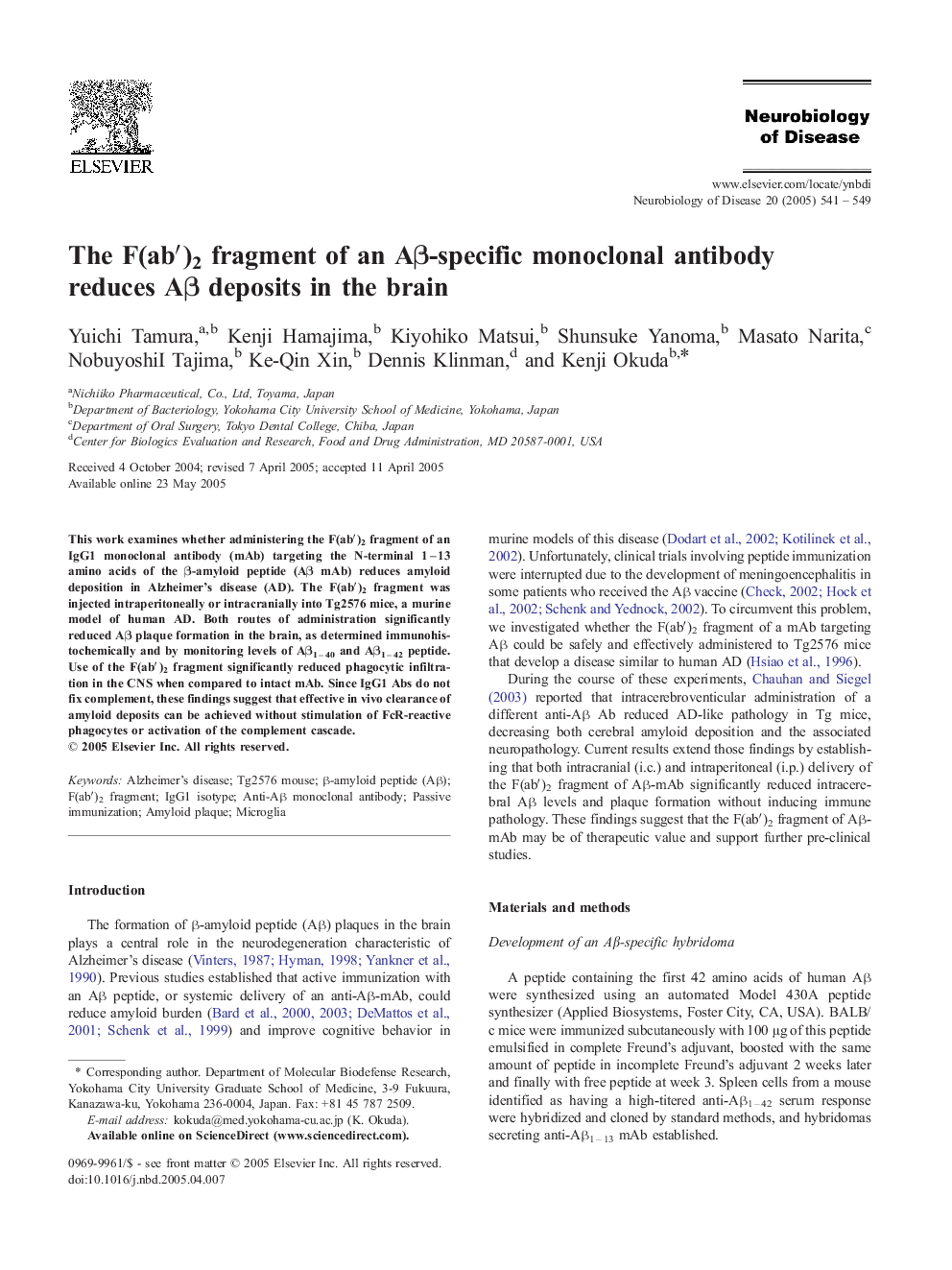| Article ID | Journal | Published Year | Pages | File Type |
|---|---|---|---|---|
| 9989634 | Neurobiology of Disease | 2005 | 9 Pages |
Abstract
This work examines whether administering the F(ab´)2 fragment of an IgG1 monoclonal antibody (mAb) targeting the N-terminal 1-13 amino acids of the β-amyloid peptide (Aβ mAb) reduces amyloid deposition in Alzheimer's disease (AD). The F(abâ²)2 fragment was injected intraperitoneally or intracranially into Tg2576 mice, a murine model of human AD. Both routes of administration significantly reduced Aβ plaque formation in the brain, as determined immunohistochemically and by monitoring levels of Aβ1-40 and Aβ1-42 peptide. Use of the F(abâ²)2 fragment significantly reduced phagocytic infiltration in the CNS when compared to intact mAb. Since IgG1 Abs do not fix complement, these findings suggest that effective in vivo clearance of amyloid deposits can be achieved without stimulation of FcR-reactive phagocytes or activation of the complement cascade.
Keywords
Related Topics
Life Sciences
Neuroscience
Neurology
Authors
Yuichi Tamura, Kenji Hamajima, Kiyohiko Matsui, Shunsuke Yanoma, Masato Narita, NobuyoshiI Tajima, Ke-Qin Xin, Dennis Klinman, Kenji Okuda,
